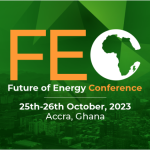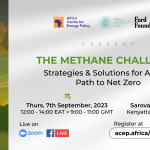

In September 2022, ACEP and Imani initiated an investigation into a sole-sourced contract between Genser and GNPC, encompassing a combined gas and pipeline infrastructure agreement. Our analysis revealed that Genser stood to receive $1.5 billion in gas discounts over a sixteen-year period, while utilizing effectively subsidised infrastructure to expand its enclave power projects across the country. These subsidies allowed it to poach bulk consumers from state entities such as VRA and ECG. In the course of seeking clarity on the rationale behind Ghana’s commitment of $1.5 billion in officially unacknowledged subsidies delivered through GNPC, the select committee on mines and energy announced its intent to investigate our claims.
After nearly a year, on August 16, 2023, the committee’s chairperson released a report claiming it to be the work of the committee. ACEP and Imani have conducted a comprehensive review of the report presented by Mr. Atta Akyea, Member of Parliament for Abuakwa and Chairman of the Select Committee on Mines and Energy. This review indicates that the report has been crafted with an intent to retrospectively legitimise the deal, while downplaying overwhelming evidence that the deal is not in the national interest. The chairperson’s conduct raises serious questions in respect of objectivity, integrity and commitment to parliamentary values of accountability and propriety.
ACEP and Imani participated in the committee’s proceedings as a gesture of respect for the parliamentary institution. Despite concerns regarding potential bias stemming from media interviews by the committee’s chairperson and some of its members, we chose to put those reservations aside and engaged in good faith. Therefore, despite the committee’s failure to provide its witness with the necessary preparatory guidance, it did not matter, we made appearance.
After four hours of interrogation, ACEP and Imani impressed on the committee to deeply subject the Genser agreement to analysis within the broader and harrowing context of an energy sector bleeding billions of Dollars annually of public money on account of poor judgements and commercial decisions. The issue, therefore, was not whether GNPC had the legal remit to sign the Genser contract, but how the contract terms affect the sustainability of the energy sector and fair pricing of gas which feed into electricity prices for the consumer.
The committee’s report reveals a concerning pattern wherein the chairperson sought selective evidence to validate the transaction. Given that such evidence was often lacking, he was also not averse to conjuring some. In view of the serious deficiencies of the report, and the importance of the subject matter, we intend to thoroughly analyse the committee’s so-called “findings” using the public interest yardstick. It is essential that we do this bearing in mind the direct contribution of energy sector mismanagement to Ghana’s current fiscal and economic plight. A state of affairs that is directly leading to the country’s gains in poverty reduction over the last three decades being reversed at an alarming rate.


